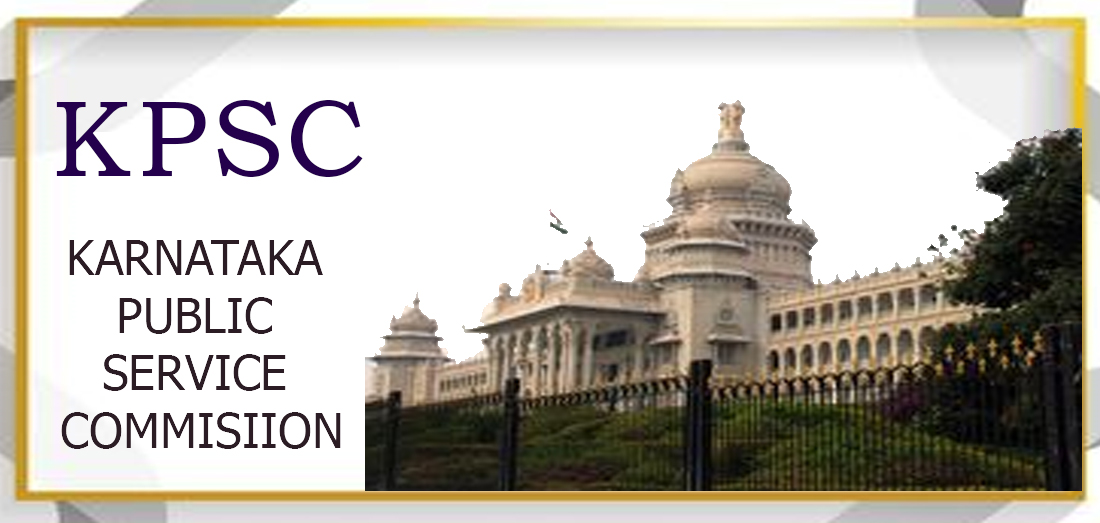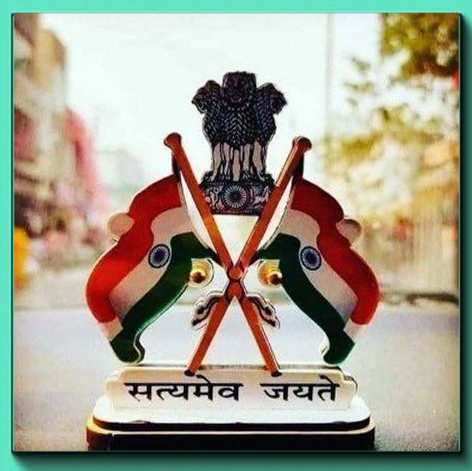
About the KPSC - KAS Coaching
It’s a one-stop solution for all KPSC exam preparations. The faculties are highly educated and respected individuals, who are retired from civil services. The mission of the institute is to coach and mentor the KPSC aspirants to reach the goal of becoming qualified civil servants to serve the people.
Trainers
Course Ware
Free
Available Seats
30 per Batch
Schedule
Morning - Evening & Fast Track
Online
Flexible Timings
Assessment
Test Series & Answer Writing
Benefits of getting coaching from VXplore IAS Academy:
Choosing KPSC coaching at VXplore Academy comes with a plethora of benefits that are tailored to enhance the preparation journey and maximize the chances of success in KPSC examinations.
Here are some of the key benefits:
Experienced and Expert Faculty: VXplore Academy boasts a team of experienced and highly qualified faculty members. These experts have a strong track record of mentoring KPSC aspirants and possess in-depth knowledge of the examination patterns, trends, and strategies.
Comprehensive Syllabus Coverage:
The coaching at VXplore Academy ensures thorough coverage of the KPSC syllabus. From General Studies to specific subjects and optional papers, the curriculum is designed to equip students with a solid foundation in all relevant areas.
Personalized Attention:
The batch size at VXplore Academy is kept small to ensure personalized attention to each student. Faculty members can address individual doubts and provide tailored feedback to help students improve their performance.
Strategic Study Material:
The study material provided at VXplore Academy is curated strategically to offer concise yet comprehensive content, facilitating effective learning and revision.
Regular Mock Tests and Assessments:
To gauge the progress of students and simulate the actual examination environment, regular mock tests and assessments are conducted. This helps students identify their strengths and weaknesses and work on areas that need improvement.
Current Affairs Analysis:
Staying updated with current affairs is crucial for KPSC exams. VXplore Academy offers dedicated sessions for comprehensive current affairs analysis and discussions.
Interview Guidance:
VXplore Academy provides guidance for the interview stage, including mock interviews, group discussions, and personality development sessions to boost candidates' confidence and presentation skills.
Flexibility in Course Options:
The academy offers various course options, including regular courses, crash courses, and weekend courses, allowing candidates to choose the program that best suits their schedule and requirements.
Success Stories and Track Record:
VXplore Academy has a proven track record of successful KPSC aspirants who have secured top ranks and prestigious positions in the Karnataka Public Service Commission exams.
Supportive Learning Environment:
The academy fosters a supportive and motivating learning environment where students can interact, share knowledge, and learn from each other's experiences.
Personal Development and Soft Skills:
Along with academic preparation, VXplore Academy emphasizes personal development, communication skills, and overall personality grooming to help candidates excel in the selection process.
By choosing KPSC coaching at VXplore Academy, aspirants can unlock their full potential, gain a competitive edge, and set themselves on the path to achieving their dreams of serving the state of Karnataka through the KPSC examinations.
KPSC Examination Coaching
KPSC stands for Karnataka Public Service Commission. It is a state-level recruiting agency in Karnataka responsible for conducting various recruitment examinations and selecting candidates for different government jobs in the state. KPSC jobs in Karnataka cover a wide range of sectors and departments, offering opportunities for candidates with various educational backgrounds and skill sets.

KPSC - Karnataka Public Service Commission
Some of the common KPSC jobs in Karnataka includes:
Group A and Group B Services:
These are prestigious administrative positions, including Karnataka Administrative Service (KAS), Karnataka Police Service (KPS), and other managerial roles in various departments.
Karnataka Health Department Jobs:
Positions such as Medical Officers, Staff Nurses, Pharmacists, Lab Technicians, and other healthcare-related roles.
Teaching Jobs:
KPSC conducts recruitment for various teaching posts in government schools and colleges, such as Primary School Teachers, High School Teachers, and College Professors.
Karnataka Police Jobs:
Opportunities in Karnataka Police Department, including Sub-Inspectors, Constables, and other law enforcement roles.
Engineering Jobs:
Engineering graduates can apply for positions in different government departments, including Public Works Department (PWD), Water Resources Department (WRD), etc.
Karnataka Forest Department Jobs:
Positions like Forest Range Officers, Forest Guards, and Forest Watchers.
Karnataka Revenue Department Jobs:
Positions like Revenue Inspectors, Village Accountants, and other administrative roles.
Karnataka Excise Department Jobs:
Roles related to excise and taxation, including Excise Sub-Inspectors and Excise Guards.
Other State Government Jobs:
KPSC also conducts exams for various other state government departments like Transport, Agriculture, Social Welfare, Rural Development, and more.

KAS - Karnataka Administrative Service
KAS stands for Karnataka Administrative Service, which is one of the most prestigious and sought-after civil services in the state of Karnataka, India. KAS officers are responsible for administrative functions in various state government departments and play a vital role in policymaking, implementation, and governance. The KAS examination is conducted by the Karnataka Public Service Commission (KPSC).
Some of the key KAS jobs and designations that successful candidates can aspire to include:
Deputy Commissioner (DC)/District Magistrate:
DC is the head of the district administration and is responsible for the overall administration and development of the district.
Tahsildars:
Tahsildars are in charge of a Taluk (sub-district) and are responsible for revenue administration and various land-related matters.
Commercial Tax Officer (CTO):
CTOs are responsible for tax administration, enforcement, and collection of commercial taxes.
Assistant Commissioner (AC):
Assistant Commissioners are involved in various administrative roles at the sub-divisional level and assist the Deputy Commissioner in district administration.
Assistant Director:
Assistant Directors work in various departments, such as Social Welfare, Agriculture, and Health, and handle policy implementation and program management.
Executive Officer (EO):
EOs are responsible for the administration of urban local bodies and municipal corporations.
Labour Commissioner:
Labour Commissioners are responsible for labor-related matters, ensuring compliance with labor laws, and resolving disputes.
Chief Officer (CO):
COs are in charge of municipal corporations and are responsible for urban planning and development.
These are some of the key positions that KAS officers can be appointed to, depending on their seniority and experience. KAS officers are highly respected and play a crucial role in the effective functioning of the state government machinery. The KAS examination is highly competitive, and candidates need to go through a rigorous selection process that includes a preliminary examination, main examination, and interview before being selected for these esteemed positions.
Subjects covered in KAS examinations:
The Karnataka Administrative Service (KAS) examination, conducted by the Karnataka Public Service Commission (KPSC), is a prestigious civil services examination in the state of Karnataka.
The KAS examination consists of two papers:
KAS Preliminary Examination (KAS Prelims) and KAS Main Examination (KAS Mains).
The subjects covered in these examinations are as follows:
KAS Preliminary Examination (KAS Prelims):
The KAS Prelims is an objective-type examination with two papers:
General Studies Paper-I:
This paper typically covers subjects such as Indian History, Indian and World Geography, Indian Polity, Indian Economy, General Science, Environmental Science, and current affairs.
General Studies Paper-II (CSAT - Civil Services Aptitude Test):
This paper assesses candidates' aptitude and reasoning abilities, including topics like Quantitative Aptitude, Logical Reasoning, Data Interpretation, and Analytical Ability.
Both papers of the KAS Preliminary Examination are of 200 marks each and serve as a screening test. Candidates who qualify the KAS Prelims are eligible to appear for the KAS Main Examination.
KAS Main Examination (KAS Mains):
The KAS Mains is a descriptive-type examination with four compulsory papers and two optional papers:
Compulsory Papers:
Kannada:
This paper tests candidates' proficiency in the Kannada language (qualifying paper).
English:
This paper assesses candidates' proficiency in the English language (qualifying paper).
General Studies Paper-I:
Similar to the GS Paper-I in KAS Prelims, it covers Indian History, Geography, Polity, Economy, and current affairs.
General Studies Paper-II:
This paper focuses on specific topics related to the State of Karnataka, including Karnataka History, Geography, Economy, and current affairs.
Optional Papers (Choose two from the list provided):
Candidates can choose two optional subjects from a list of subjects, which may include History, Geography, Public Administration, Sociology, Psychology, Agriculture, Animal Husbandry and Veterinary Sciences, and more. Each optional subject has two papers.
The KAS Main Examination is of 200 marks for each compulsory paper and 300 marks for each optional paper.
It is essential for candidates to thoroughly prepare for all the subjects and topics covered in the KAS examination. Enrolling in coaching programs like those offered at VXplore Academy can provide valuable guidance and support in preparing for the KAS examination effectively.

PDO - Panchayat Development Officers
PDO stands for Panchayat Development Officer.
PDO jobs are positions within the Panchayati Raj System, which is a decentralized form of governance in India that aims to bring administration and decision-making closer to the grassroots level. The Panchayati Raj System operates through elected local bodies known as Panchayats at the village, block, and district levels.
Panchayat Development Officers (PDOs) are crucial officials who work at the Gram Panchayat level. They play a significant role in the development and implementation of various developmental schemes and programs in rural areas. Some of the key responsibilities and roles of PDOs includes:
Village Development:
PDOs are responsible for the overall development of the Gram Panchayat area. They work towards improving infrastructure, amenities, and services in the village.
Planning and Implementation:
PDOs plan and implement various developmental projects and government schemes in the Gram Panchayat, focusing on areas like education, healthcare, sanitation, rural infrastructure, and welfare programs.
Budgeting and Financial Management:
PDOs handle budget allocation and financial management at the Gram Panchayat level. They ensure proper utilization of funds for different projects and programs.
Record Keeping and Reporting:
PDOs maintain records, prepare reports, and submit them to higher authorities regarding the progress of various initiatives and the utilization of funds.
Social Welfare Programs:
PDOs play a crucial role in the implementation of social welfare programs like poverty alleviation schemes, employment generation initiatives, and housing projects for the underprivileged.
Local Governance:
PDOs assist in the functioning of the Gram Panchayat and support elected representatives in decision-making and policy formulation.
Community Engagement:
PDOs work closely with local communities to identify their needs, assess development requirements, and ensure that developmental initiatives are aligned with the aspirations of the villagers.
PDO jobs offer candidates an opportunity to work at the grassroots level and contribute directly to the development and progress of rural areas. The recruitment process for PDO positions may vary from state to state, and candidates usually need to clear competitive examinations conducted by the respective state's Public Service Commission or Rural Development Department to secure these positions.
Subjects covered in PDO examinations:
The subjects covered in PDO (Panchayat Development Officer) examinations may vary depending on the state conducting the recruitment and the specific syllabus for the exam. Generally, PDO examinations focus on testing candidates' knowledge in various areas related to rural development, local governance, and general aptitude. Here are some common subjects that are typically included in PDO examinations:
General Knowledge (GK) and Current Affairs:
This subject tests candidates' awareness of current events, general knowledge about India and the world, and knowledge of various social, economic, and political issues.
Rural Development and Panchayati Raj System:
This subject covers various aspects of rural development, rural governance, and the functioning of the Panchayati Raj institutions. It includes topics like the role of Panchayats, local governance, rural development schemes, and community development programs.
General English/Kannada:
Depending on the state's official language, candidates may be tested on their proficiency in either General English or the regional language, such as Kannada in Karnataka.
Quantitative Aptitude:
This subject assesses candidates' ability to solve mathematical problems, including numerical reasoning, data interpretation, and basic arithmetic.
Logical Reasoning:
Logical reasoning tests candidates' ability to analyze and solve logical problems, patterns, and critical thinking.
Computer Knowledge:
Basic computer knowledge is tested to check candidates' familiarity with computer operations, software, and applications.
Social Welfare Schemes:
Candidates may be questioned on various social welfare schemes and programs aimed at poverty alleviation, women empowerment, employment generation, and education in rural areas.
Rural Development Projects and Initiatives:
This subject may include questions on specific rural development projects and initiatives implemented at the Gram Panchayat level.
Candidates are advised to refer to the official notification and syllabus released by the respective state's conducting authority to get detailed information about the subjects and topics covered in the PDO examination. Proper preparation and understanding of the syllabus can help candidates perform well and secure PDO positions, contributing to rural development and governance in their respective states.

PSI - Police Sub-Inspector
PSI stands for Police Sub-Inspector, and PSI jobs refer to the positions of Sub-Inspectors within the police department. Sub-Inspectors are law enforcement officers responsible for maintaining law and order, investigating crimes, and ensuring public safety at the sub-divisional level.
In India, each state has its own police department, and the recruitment of Sub-Inspectors is conducted by the respective State Police Recruitment Boards or Commissions. PSI jobs are considered to be one of the most sought-after positions in the police department, offering candidates an opportunity to serve the community and uphold the law.
Roles and Responsibilities of Police Sub-Inspectors (PSIs):
Law Enforcement: PSIs are responsible for patrolling their assigned areas, ensuring law and order, and responding to emergencies.
Crime Investigation:
PSIs investigate crimes, gather evidence, and work to apprehend criminals.
Registering Complaints:
PSIs receive and register complaints from the public, ensuring that appropriate action is taken
.
Filing FIRs (First Information Reports):
PSIs are authorized to file FIRs and other necessary legal documents based on complaints and evidence.
Maintaining Peace and Order:
PSIs work to prevent and resolve conflicts, maintain peace, and manage law and order situations.
Assisting Senior Officers:
PSIs assist their senior officers, such as Inspectors and Assistant Commissioners of Police, in various tasks and operations.
Community Policing:
PSIs engage in community policing activities, building rapport with the public, and fostering trust between the police and the community.
Selection Process for PSI Jobs:
The selection process for PSI jobs varies from state to state but generally includes the following stages:
Written Examination:
Candidates have to appear for a written examination that tests their knowledge in subjects like General Studies, Reasoning, Aptitude, and General Knowledge.
Physical Fitness Test (PFT):
Shortlisted candidates from the written examination undergo a physical fitness test that includes measurements of height, weight, and endurance tests like running, long jump, and high jump.
Medical Examination: Candidates who pass the physical fitness test undergo a medical examination to ensure they meet the required medical standards for police service.
Personal Interview:
Shortlisted candidates from the medical examination are called for a personal interview, where their suitability for the PSI position is assessed.
Document Verification:
Finally, selected candidates' documents and credentials are verified before offering them the PSI position.
Subjects covered in PSI examinations:
PSI jobs offer candidates an opportunity to serve society, maintain law and order, and contribute to public safety. The recruitment process is competitive, and candidates need to prepare well to clear the various stages of selection. Enrolling in coaching programs like those offered at VXplore Academy can provide valuable guidance and support to aspiring PSI candidates.
The subjects covered in PSI (Police Sub-Inspector) examinations may vary depending on the state conducting the recruitment and the specific syllabus for the exam. Generally, PSI examinations aim to test candidates' knowledge in various areas related to law enforcement, general awareness, and aptitude.
Here are some common subjects that are typically included in PSI examinations:
General Knowledge (GK) and Current Affairs:
This subject tests candidates' awareness of current events, general knowledge about India and the world, and knowledge of various social, economic, and political issues.
Reasoning and Logical Ability:
This subject assesses candidates' logical reasoning, analytical, and problem-solving skills.
Numerical Ability and Quantitative Aptitude:
This subject tests candidates' mathematical ability, including numerical calculations and data interpretation.
General English/Kannada:
Depending on the state's official language, candidates may be tested on their proficiency in either General English or the regional language, such as Kannada in Karnataka.
Indian Constitution and Laws:
Candidates are questioned on fundamental rights, directive principles, legal provisions, and key aspects of the Indian Constitution and relevant laws.
Criminal Laws and Criminal Procedure Code (Cr.PC):
This subject covers various aspects of criminal laws, including sections of the Indian Penal Code (IPC) and the Cr.PC.
Police Manual and Police Administration:
This subject assesses candidates' knowledge of the police manual, the organizational structure of the police department, and various aspects of police administration.
Police Procedure and Investigation:
This subject covers the procedure to be followed in police investigations, evidence collection, and handling of criminal cases.
Community policing and Social Work:
Candidates may be questioned on community policing principles and social work aspects related to maintaining law and order and building a rapport with the public.
General Science:
Basic science topics related to physics, chemistry, and biology may be included.
Candidates are advised to refer to the official notification and syllabus released by the respective state's conducting authority to get detailed information about the subjects and topics covered in the PSI examination. Proper preparation and understanding of the syllabus can help candidates perform well and secure PSI positions in the police department.

